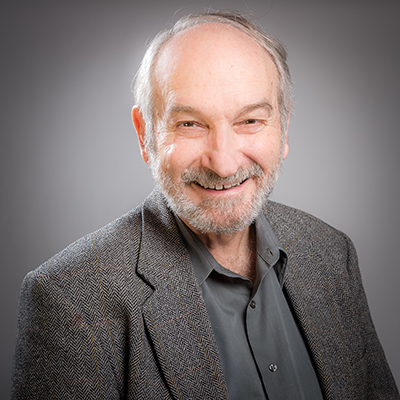Studies show that many eligible New Mexican families encounter systemic barriers in accessing the full range of government benefit programs.
With the help of a $1 million grant from the W.K. Kellogg Foundation, The University of New Mexico Office for Community Health (OCH) is reaching out to people in five communities around the state to enable them to access the resources they need.

There are a lot of people who are struggling financially, and that has been exacerbated by the pandemic. We want to help ensure they get access to critical benefits and services they are eligible for
“There are a lot of people who are struggling financially, and that has been exacerbated by the pandemic,” says Arthur Kaufman, MD, vice president for Community Health and principal investigator for the grant. "We want to help ensure they get access to critical benefits and services they are eligible for."
During the two-year pilot project, OCH-trained community health workers and Health Extension Regional Officers (HEROs) will coordinate outreach efforts in Albuquerque’s International District and South Valley, Luna County, Hobbs and portions of the Navajo Nation.
UNM is partnering on the project with New Mexico Appleseed, a statewide nonprofit that seeks solutions to poverty through policy and market-based reform.
“Exiting the cycle of poverty can only be done by accessing benefits that will help support stability and growth,” says Jennifer Ramo, founder and executive director for New Mexico Appleseed. “This partnership is a dream collaboration of high-performing partners who know the community and know the rules of the benefit system. We are honored to be a part of it.”
Families face barriers in accessing critical support programs that can significantly affect their long-term health outcomes, Kaufman says.
The pilot project aims to lower these barriers and increase the number of eligible families registered for Medicaid, rental/housing assistance, the Low-Income Home Energy Assistance Program, the Supplemental Nutrition Assistance Program and other benefits.
“Our biggest priority is to develop a model to intervene on adverse social determinants of health and provide support services specific to each person and family,” Kaufman says.
That could set the stage for lower-income families to have the necessary resources to set them on a path for long-term health and economic security. “It would be a sustainability strategy,” Kaufman says.
Community health workers will lead outreach efforts, screening and engaging with individual families. The HEROs, UNM representatives based in communities around the state, will work with local partner organizations and help to evaluate the pilot model.
The Kellogg Foundation, headquartered in Battle Creek, Mich., works with communities to create equitable conditions for children so they can realize their full potential in school, work and life.
